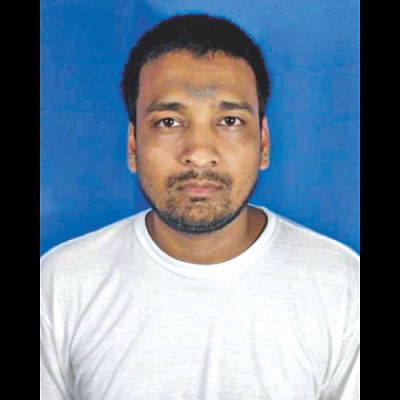Longest, futile trip to US

Four Bangladeshi men left Hazrat Shahjalal International Airport in a flight for Qatar in July, 2014. But Qatar was not their destination. They wanted to go to the land of the free and home of the brave.
A gang of international human traffickers took advantage of their bravery and zeal to make it to the US.
The four had made the perilous journey to the US, crossing 10-13 countries of mostly of the Americas and often putting their lives at risk. They eventually made it to the US in November 2014 only to be put in a detention centre, made to go through the legal process and deported on July 27.
They first took transit in the Gulf country en route to São Paulo in Brazil and then they split into two groups and headed for Argentina and Bolivia.
Abdul Halim, a 35-year-old Bangladeshi who worked in Bahrain from 2005 to 2010, was one of the four. He along with 48 other Bangladeshis was deported.
Halim narrated to The Daily Star his journey of two years after falling into the trap of an international human trafficking syndicate, which targets jobseekers from Asia and Africa for smuggling to the US and other countries in the Americas.
Each of them had to pay Tk 20-25 lakh to a broker named Khorshed Alam from Dhaka for the journey in January 2014.
“Our broker set his agents in all countries to help us overcome all possible hurdles and show us the way to reach our final destination,” said Halim.
They used air, water and land routes. They travelled through Qatar, the UAE, Brazil, Bolivia, Peru, Venezuela, Ecuador, Columbia, Panama, Costa Rica, Nicaragua, Honduras, Guatemala and Mexico and finally entered the US through California and Texas.
PERILOUS JOURNEY
After returning from Bahrain in 2010, Halim got married in Comilla. The marriage did not last long as his wife left him. Since then he faced many difficulties as he tried to earn his living by farming and small businesses in his village.
He was not enjoying his life. He later came across the broker and decided to take the risk of travelling to the US.
“Some people from our village went to the US and are now working there. So, I thought I would be able to have a fresh start to my life after settling in the US. But I could not succeed; I have failed and am suffering even more,” said the dejected man.
Halim, Kabir, and two other victims from Noakhali, travelled together up to Bolivia. They paid $100 each and managed one-month visa from the Bolivian immigration police. They got separated after staying around 10 to 15 days in Bolivia.
Halim went to Peru where he spent four to five days before entering Ecuador after a 50-hour bus journey.
When he arrived in Colombia, he was astonished to see many jobseekers from Bangladesh, India, Pakistan, Nepal, Somalia, Eritrea and some African countries.
“I found around 60 to 70 people from different countries, including Bangladesh, in the dens of the human traffickers in Colombia. Some people used to stay there as informers and security guards,” he recalled.
All of them were taken to Panama later on speedboats. When they were taken to the city, they were caught by the police and taken to a detention centre. However, they were released after 10 days and asked to leave Panama.
They then crossed Costa Rica, Nicaragua, Honduras, Guatemala and Mexico in three to four months.
IN USA ONLY TO SUFFER
It was November 13 when he left Mexico and entered Texas. Soon after his illegal entry, the US immigration police caught and sent him to a detention centre.
“I sought political asylum. The US immigration police produced me before a court six to seven times. But on June 21, 2015, the court rejected my appeal and ordered to deport me,” Halim said.
The court rejected his appeal as the Bangladesh embassy allegedly requested the US police not to allow Halim political asylum. “Actually, it was not my intention to seek political asylum there. But I had no other idea at that time,” he claimed.
Contacted, Ann B McConnell, public affairs officer for the US embassy in Dhaka, told The Daily Star in an email that the US Department of Homeland Security is the lead US government agency on deportation and asylum and that the Bangladeshis were deported after being afforded the due process under the US judicial system.
On April 6, 28 Bangladeshis who had taken similar journeys to the US were deported.

 For all latest news, follow The Daily Star's Google News channel.
For all latest news, follow The Daily Star's Google News channel. 



Comments